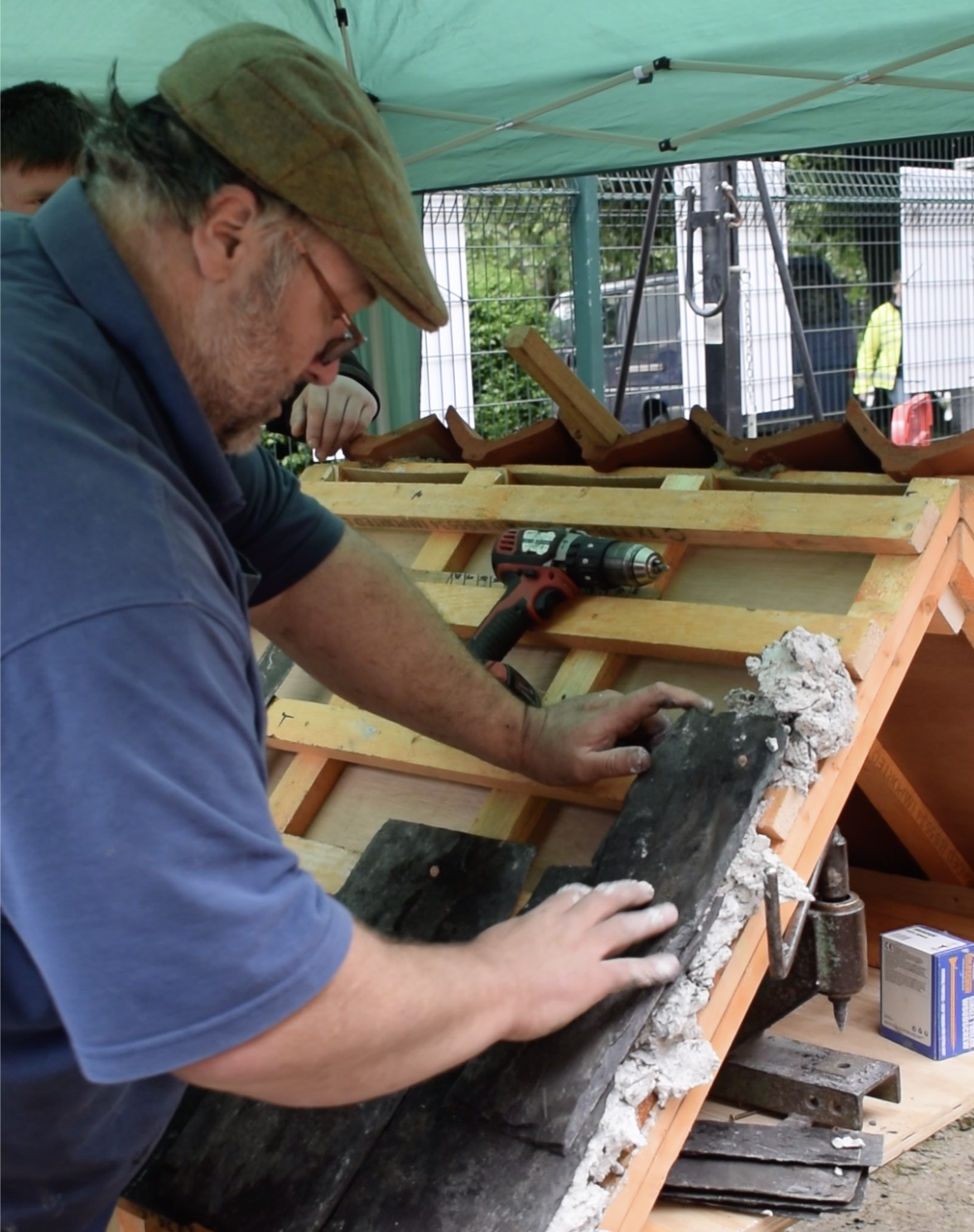West Dean College of Arts & Conservation has launched a new 12-month programme of building conservation Master Classes with, for the first time, a Conservation & Repair of Tile Roofing course starting next month (8-11 November).
There are onsite courses as well as e-blended courses in the year's programme. They are supported by a grant from Historic England’s Covid-19 Emergency Response Fund.
Next month's Conservation & Repair of Tile Roofing course will be led by Richard Jordan, a specialist in historic roofing. He is based in Derbyshire and provides training and advice on roofing across the United Kingdom. He has years of experience as a roof slater and tiler, having learnt the trade from his father. Richard will be joined by Chris Wood, who retired as Historic England's Senior Building Conservation Advisor last year.
The course is intended to fill a gap in practical training in traditional roofing. It is offered along with the existing four-day course on Conservation & Repair of Slate & Stone Roofing, which runs for four days from Monday, October 18, to Thursday, October 21. Participants will start by gaining an understanding of how roofs work, the different materials used, methods of construction and regional variations.
Modern codes of practice and standards are covered, with practical demonstrations and hands-on work in making and preparing slates and the application of mortars to roofs.
The course comprises a combination of practical sessions on surveying old roofs, traditional detailing, writing specifications and finding sources of information, along with films.
As Catherine Woolfitt, Subject Leader (Building Conservation), says: “In a recent interview prior to his retirement, lecturer Dr David Farrell, who taught the Conservation & Repair of Architectural & Structural Metalwork building conservation master class, mentioned how important it was to adapt to changes in the profession. The courses at West Dean College are responding on a regular basis, whether with new elements or new tutors, to ensure we bring students the very latest advice and practices.” (To read the whole interview click here)
Another new course being introduced in June next year will focus on building surveys & recording, which is rapidly adopting digital technology.
OTHER COURSES INCLUDE:
NOVEMBER 15-17, COATINGS & CONSOLIDANTS FOR MASONRY
NOVEMBER 22-25, SPECIFYING CONSERVATION WORKS
MARCH 1-2, CONSERVATION & REPAIR OF PLASTERS AND RENDERS (ONLINE AND WORKSHOP BASED)
MARCH 14-16, CONSERVATION & REPAIR OF STONE MASONRY (ONLINE AND WORKSHOP BASED)
APRIL 4-6, MASONRY CLEANING
APRIL 4-7, CONSERVATION & REPAIR OF TIMBER
JULY 18-21 - CONSERVATION AND REPAIR OF BRICK AND FLINT MASONRY
SEPTEMBER 12-15, CONSERVATION & REPAIR OF ARCHITECTURAL & STRUCTURAL METALWORK
All these courses can be taken on their own or as one of the seven core Building Conservation Masterclasses (BCMs) required for the Professional Development Diploma (PDD) in Historic Building Conservation & Repair.
The courses offer special value to those who wish to gain a new perspective in applying conservation principles to the repair & maintenance of historic structures, such as architects, conservation officers, masons, carpenters and others involved in conservation. They are also valuable to engineers.
West Dean College of Arts and Conservation in West Sussex has been running internationally respected Building Conservation Masterclasses in conjunction with Historic England since 1999.
Students come from all parts of the UK and abroad for courses taught by experts from across the sector. They often use the College’s unique ruinette, originally conceived by the late Colin Burns, a Master Mason.
Core subject areas include brick, flint, timber, stonemasonry, plasters, renders, metals, concrete and structural repairs.
Students include architects, surveyors, engineers, stonemasons, carpenters, bricklayers, conservators and graduates. You can find out more on the College website below.
To ensure a safe and welcoming campus, the College has put in place Covid measures that include social distancing, self-opening doors, fewer students in workshops, and extensive cleaning and sanitising protocols to protect students and staff.

